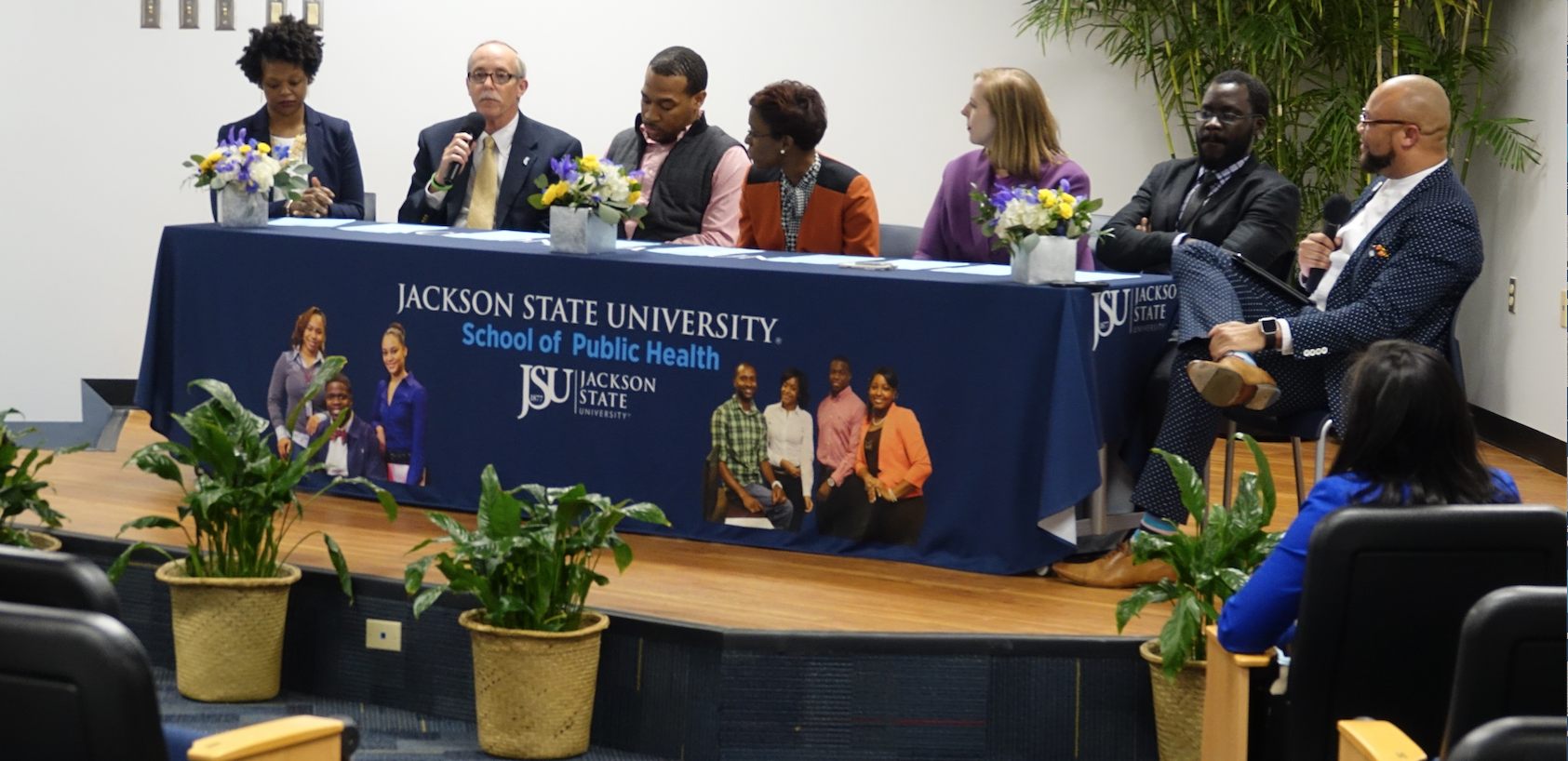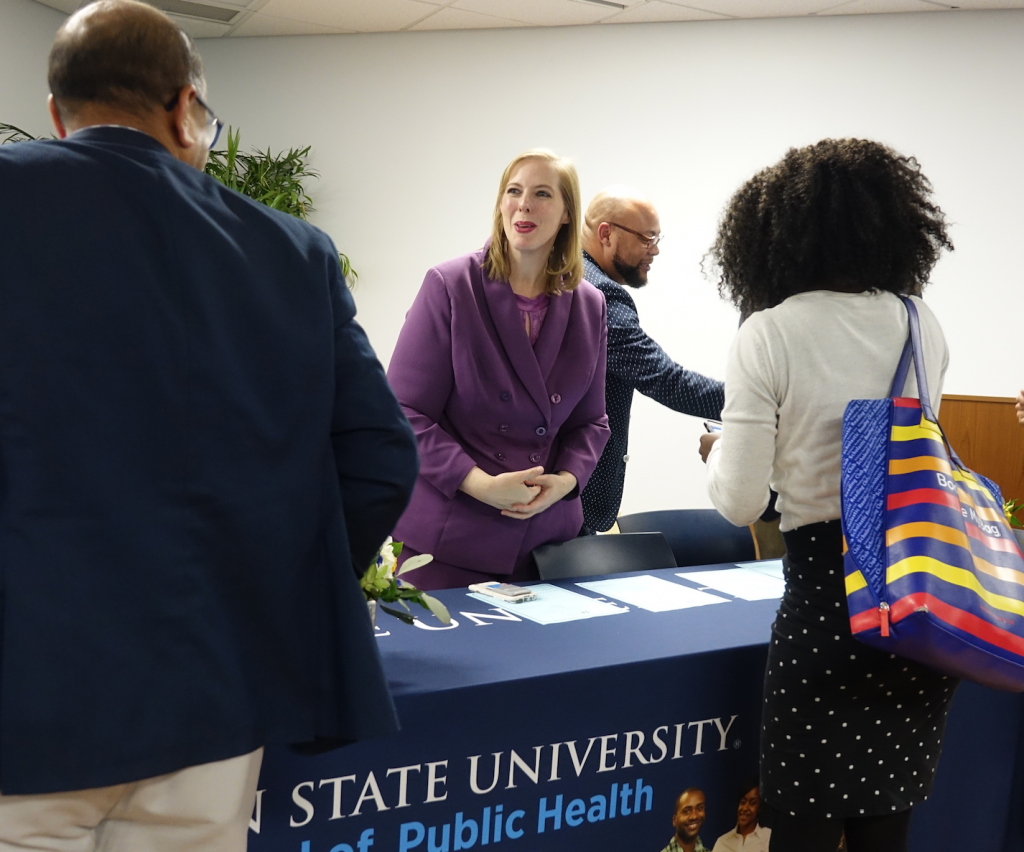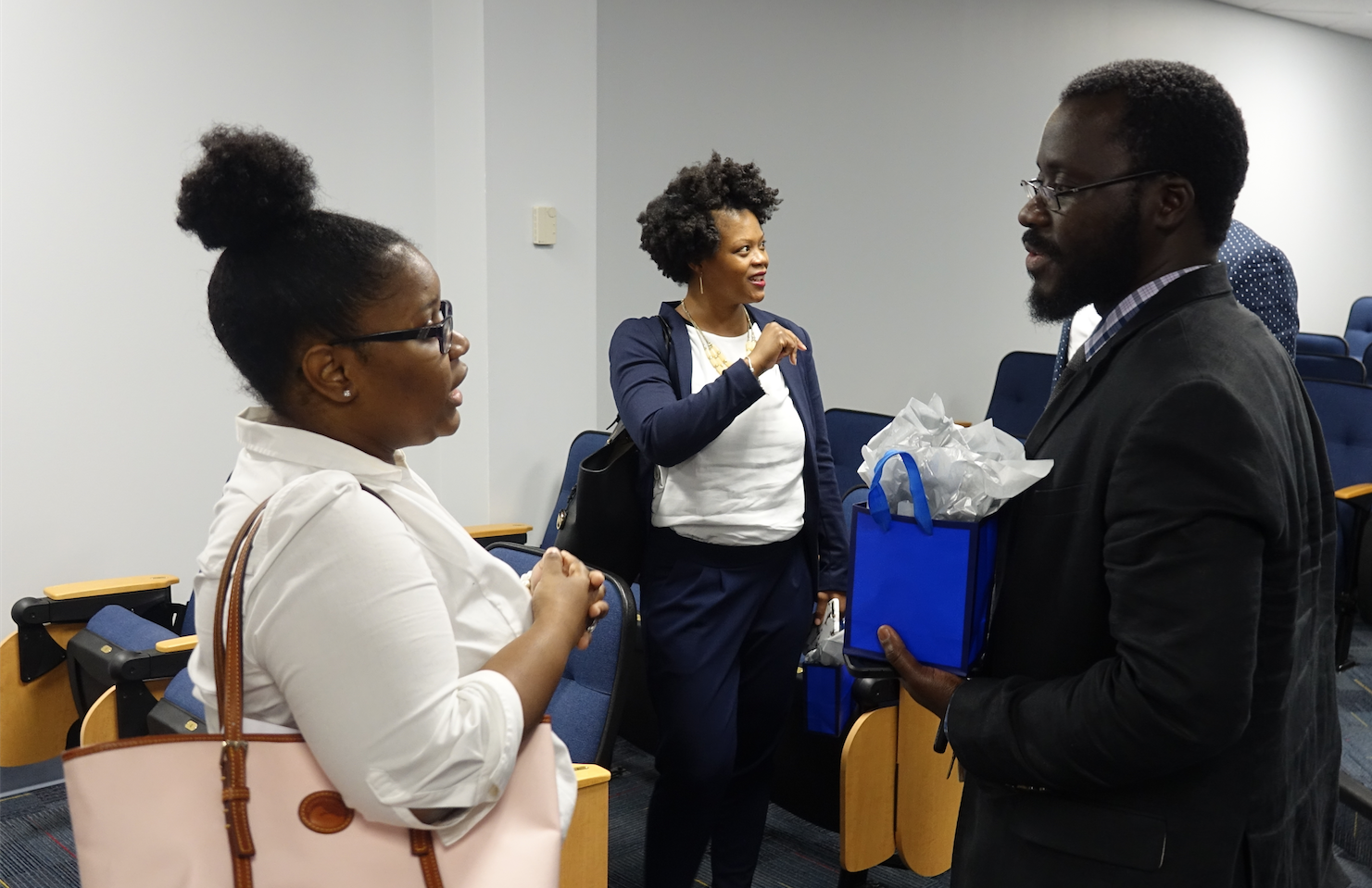
![]()
[hr]During National Public Health Week recently, several alumni from JSU’s School of Public Health (SPH) touted the importance of their profession and said a lack of access to medical care and failure to provide quality education are among the most pressing issues facing Americans.
A half-dozen panelists gathered inside the Jackson Medical Mall on Wednesday to display their solidarity and declare themselves vital agents of change. The health-care colleagues said it’s time for the state and nation to combat social determinants of health, such as alcohol use, unprotected sex, smoking and injection drug use.
Dr. Nakeitra Burse, a grant writer for SPH, said unless the nation provides access to quality health care, it’s choosing to become complicit in “the perpetuation of chronic illnesses.”
Her colleague Dr. Vincent Mendy, an assistant professor in JSU’s Department of Epidemiology and Biostatistics, offered his perspective into the ongoing problems. Mendy said greater focus must be placed on factors that affect vulnerable people. He agrees that social determinants of health are detrimental to the public. “Unfortunately, however, we don’t address these causes.”
Mendy said health-care providers must be willing to engage and interact more with people. “Our challenge is addressing education and employment. We must partner with policy-makers and educate them on public health matters.”
Dr. Amy Radican-Wald, a senior policy analyst for the Center for Mississippi Health Policy, said she believes that neither the public nor policy-makers fully understand the value of preventing diseases. “We still need to work on our messaging and let everyone know the value of health care and how it connects to the bigger picture.”

Other solutions by panelists to address crises affecting the population include early childcare services and a more thorough examination of environmental factors that create public health issues.
Christopher Cox, director of youth programming for Teen Health Mississippi, is also adamant about the impact of social determinants of health. “We have to do a better job and go out to communities and determine what the needs are and adopt programs to address those needs.”
On another matter, panelists debunked an argument that a public health degree is important only if an individual is also a practicing clinician.
Burse took that issue to task, noting that “the things that you can do with a public health degree is change the whole trajectory of the community just by one policy or just one program. … You can really have a far-reaching impact with public health, and it will trickle down to those individuals that you will help in a clinical setting.”
Bringing greater clarity to her point, Burse said, “Both professions (practicing clinicians and public health professionals) are very much needed, but I think that public health brings a completely different spin on the health-care setting. Whereas, a physician may tell you to go home and lose 10 pounds, the public health professional will help you walk through losing those 10 pounds. So, then we can work in tandem with the clinicians.”
Mendy agrees with that analysis. He said public health is the key and pointed to the water contamination in Flint, Michigan. “A single physician could not have prevented that. It takes public health. … The benefit of public health is long-term. Imagine telling someone to stop smoking today, and 30 years from now they’re not going to develop cancer. … In clinical care, the outcomes are very quick … unlike in public health that is long-term.”
Additionally, Mendy said, “Most of the things we do in life involves public health.” He cited, as examples, the food we eat in restaurants, the water we drink and the air we breathe. “All of these things are a challenge in certain parts of the world.” Nevertheless, he said those in clinical settings and public health professions complement each other.
With so much work involved in public health, there is concern about burnout. So, panelists discussed steps to avoid severe fatigue, although they say it may be inevitable because of the very nature of the work.
Jim Craig, director of Health Protection for the Mississippi State Department of Health, urged the audience to try to mitigate burnout by connecting with the right team and landing in a position that interests them. Craig has switched jobs 13 times since working in public health and said he believes the changes helped him avoid major exhaustion.
Meanwhile, Burse said if burnout creeps up on you, a change of scenery may, in fact, be the best option.
“The beautiful thing about public health is that just because you started out in HIV, doesn’t mean you have to end in HIV.” Burse said the job of a public health professional can weigh heavily on a person when having to constantly share, for example, HIV-positive test results to teenagers. “You do get burnout when you see those stories over and over.”







